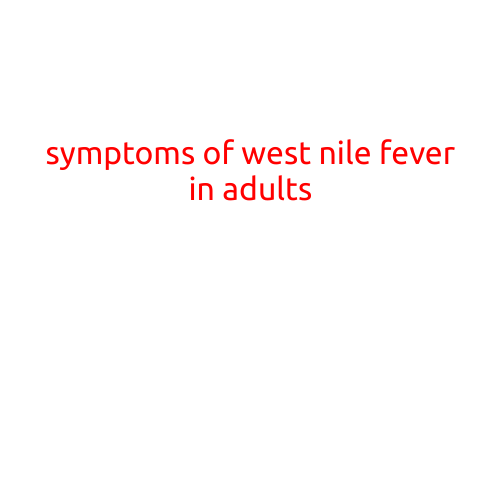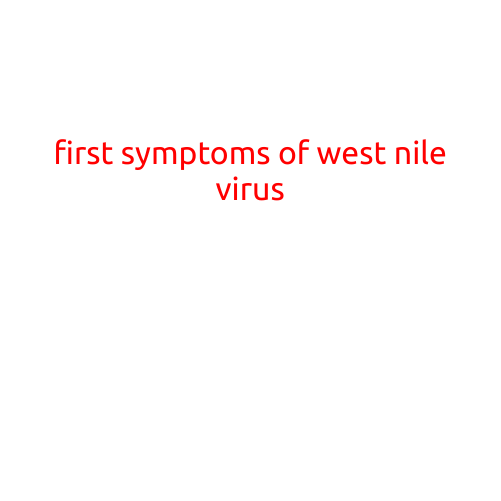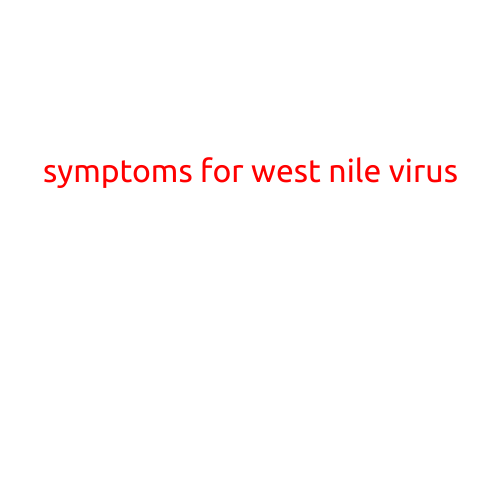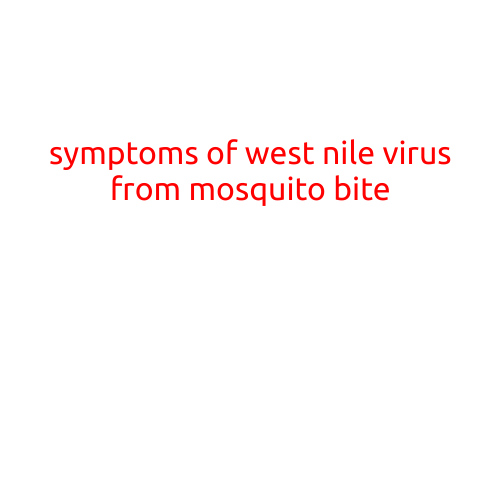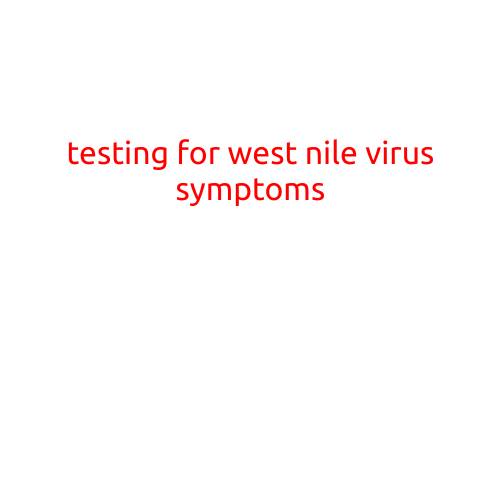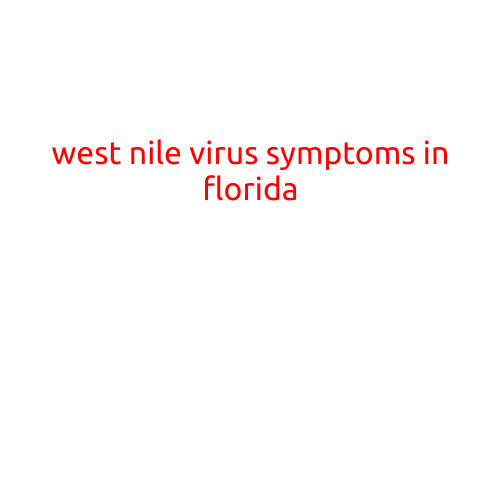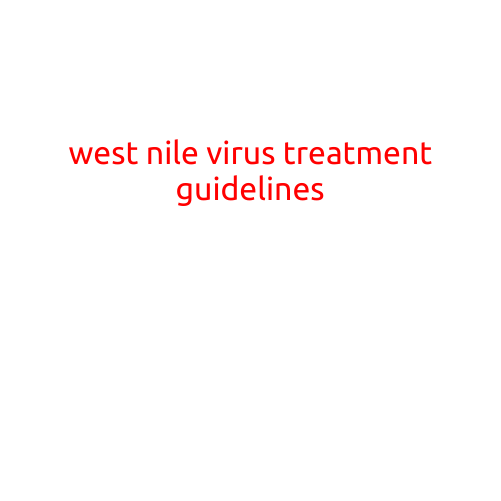
West Nile Virus Treatment Guidelines
West Nile virus (WNV) is a mosquito-borne flavivirus that has been known to cause serious and potentially life-threatening illnesses in humans. While there is no specific treatment for WNV, patients with severe symptoms may require supportive care and management to help alleviate their symptoms and improve outcomes. The following are the treatment guidelines for WNV:
Symptomatic Management
For patients with mild symptoms, such as fever, headache, and body aches, supportive care is usually sufficient to manage their symptoms. This may include:
- Rest and hydration
- Acetaminophen or ibuprofen to reduce fever and relieve pain
- Use of over-the-counter antihistamines or decongestants to alleviate itching and congestion
- Topical antihistamines or hydrocortisone creams to reduce itching and inflammation
Antiviral Therapy
There is no specific antiviral therapy approved for the treatment of WNV. However, some antiviral medications may be used to manage severe symptoms or reduce the duration and severity of the illness. These may include:
- Ribavirin: This medication has been shown to be effective against other flaviviruses, such as dengue and yellow fever, but its efficacy against WNV is unclear.
- Intravenous immunoglobulin (IVIG): This medication contains antibodies that can help neutralize the virus and alleviate symptoms.
Supportive Care
Patients with severe symptoms, such as encephalitis or meningitis, may require supportive care to manage their condition. This may include:
- Oxygen therapy to maintain oxygen saturation levels
- Mechanical ventilation to assist with breathing
- Intravenous fluids and electrolyte replacement to manage dehydration and electrolyte imbalances
- Management of increased intracranial pressure with medications such as mannitol or hypertonic saline
- Cardiac monitoring and management for patients with cardiac complications
Immune Globulin
Immune globulin, also known as intravenous immune globulin (IVIG), has been used to treat cases of WNV with severe neurological symptoms. IVIG contains antibodies that can help neutralize the virus and alleviate symptoms.
Prevention
The best way to treat WNV is to prevent infection in the first place. This can be achieved by:
- Using insect repellent and wearing protective clothing when outdoors
- Eliminating standing water around homes and communities to reduce mosquito breeding sites
- Wearing long-sleeved shirts and pants when outdoors
- Avoiding outdoor activities during peak mosquito hours
- Installing window and door screens to prevent mosquito entry
- Using Fans to circulate air and reduce mosquito attraction
Conclusion
While there is no specific treatment for WNV, patients with severe symptoms may require supportive care and management to help alleviate their symptoms and improve outcomes. Antiviral therapy and immune globulin may also be used to manage severe symptoms. Prevention remains the best way to avoid infection, and patients should take steps to protect themselves from mosquito bites.
